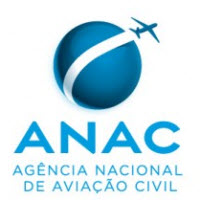Is Brazil Air Travel Accessible? Exclusive Interview With Brazil CAA
- Written by Roberto Castiglioni
 Accessible air travel is crucial to Brazil, host of the upcoming 2014 Football World Cup and 2016 Olympics and Paralympics games.
Accessible air travel is crucial to Brazil, host of the upcoming 2014 Football World Cup and 2016 Olympics and Paralympics games.
Last July, the Brazilian Civil Aviation Authority ANAC (Agência Nacional de Aviação Civil) published Resolution No 280/2013 which sets new rules for transportation of passengers with special needs.
The National Civil Aviation Agency (ANAC), a regulatory agency under the Brazilian Civil Aviation Secretary of the Presidency of the Federative Republic of Brazil, is responsible for regulating and supervising civil aviation activities, as well as air transportation and airports infrastructure in the country.
The new regulation, coming into effect in January 2014, introduces significant changes in the way passengers with disabilities are assisted at airports across the South American nation.
In this exclusive interview with ANAC, we discuss key elements of 280/2013, and the country’s airport infrastructure readiness for the upcoming world events, the 2014 Football World Cup and 2016 Olympics and Paralympics games.
Q. Resolution 280/2013 establishes that airlines shall charge 20% or less for the travel companion fare when the carriage of a passenger with special needs requires a safety assistant. Does discount to taxes and charges as well, or just the airline fare?
A. The discount applies only to the airline fare, excluding taxes.
Q. Which is the scope of applicability of the Resolution?
A. The resolution is applicable only for flights departing from Brazil. Therefore, the resolution does not apply to flights, including those operated by Brazilian airlines, arriving to Brazil with the origin outside the country.
Q. The Resolution requires passengers with special needs to book assistance at least 48 hours before their flight. With concern to flights to the United States, how do you handle the conflict between this resolution and US legislation 14 CFR Part 382 which does not require the passenger with special needs to pre notify request for assistance?
A. Resolution n° 280/2013 says the passenger with special needs (PNAE) must provide prior information in order that the air carrier and the airport can prepare to provide better service for them. However the lack of pre-booking as stated in the Resolution does not prevent their transportation.
Q. With concern to the carriage of mobility devices: are there any limits to the carriage of electric wheelchairs or mobility scooters?
A. There is a requirement for the air carriers, to carry mobility devices used for locomotion of the PNAE, free of charges, limited to one piece. However, shipping may take place in the aircraft cabin or luggage compartment, with the obligation of making it available to PNAE (Passageiros com Necessidade de Assistência Especial) on landing.
Q. In case of loss or damage of mobility devices, are refunds capped within the limits set forth by the Montreal Convention (approximately GBP 1.100, USD 1.740, EUR 1.280)?
A. Standards set out in the Montreal Convention are respected in Brazil in relation to the carriage of baggage. However, Resolution 280/2013 establishes specific actions for transport of technical aids for people with special needs in order to align with rights under the Convention on the Rights of Persons with Disabilities.
Under the new resolution, technical assistance or medical equipment must be declared, identified and presented to the air carrier, which must provide proof of receipt for PNAE. The air carrier have to provide on landing, in case of loss or damage of these, an equivalent item that must remain at the disposal of the PNAE until the passenger makes the acquisition or replacement of technical assistance or medical device, limited to within 15 days after payment of the indemnity. It will be declared total loss or destruction, when the technical assistance or medical equipment has not been returned to PNAE in the same condition as they were presented to the air carrier, after 48 hours of landing. Then the air carrier will have to reimburse the PNAE market value of technical assistance or medical equipment lost or unusable, within fourteen days.
Q. With concern to accessibility, Brazilian airports have been regarded as infrastructure with room for improvement. What is Brazil doing to tackle this widespread perception in preparation for the 2014 World Cup and the 2016 Olympics and Paralympics games?
A. The airports operated by INFRAERO undergo a restructuring contemplating accessibility issues named as “Project Adequacy Airports to Accessibility Requirements”. Additionally, it is important to note that the monitoring requirements of accessibility, like access ramps and others typical components of buildings, are not the responsibility of ANAC, but of another department of the Brazilian Government.
Q. We surfed airport websites and noticed a total lack of information for passengers with special needs. Is this issue going to be addressed in the future?
A. The resolution defines that the airport operator must make available to the public the ways of compliance with the PNAE (Art. 21 § 2º). We expect that this will make the airport operator change this behaviour. NDA: Art. 21, point 2 mandates airport operators to display information for passengers with special needs in accessible formats.
Q. In your opinion, would you encourage accessible tourism to Brazil given the existing airport infrastructure and connections?
A. It would be more appropriate to direct this question to an institution geared towards tourism.










